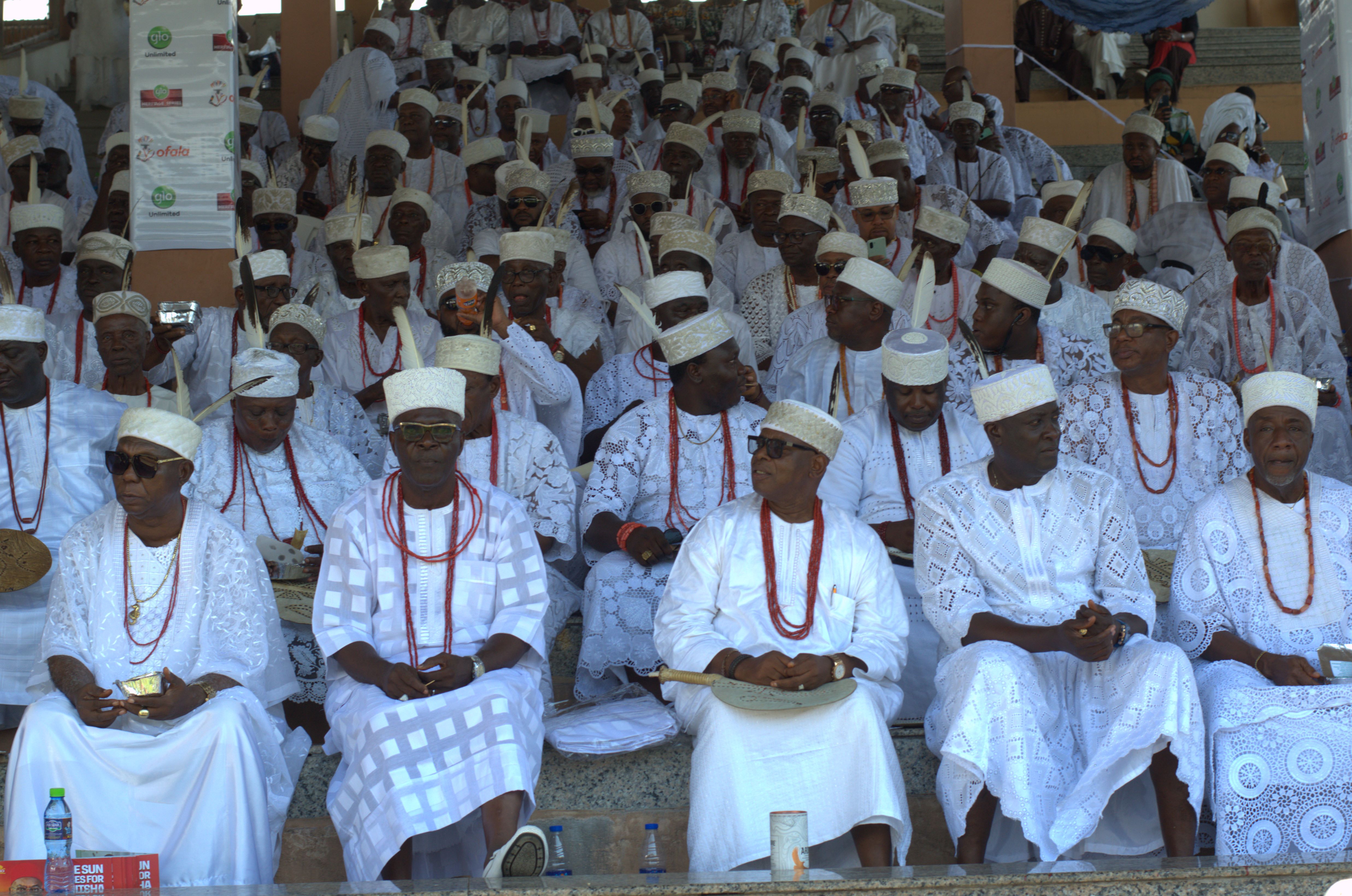By Babatunde Jose
Tomorrow, Saturday, the 9th day of the last month of the Islamic calendar Dhul Hijjah, over 2 million pilgrims will converge on Mount Arafat for the annual Hajj festival. Mount Arafat is an important place in Islam because pilgrims spend the afternoon there praying and supplicating to Allah to wash away their sins and make them whole again: Failure to be present in the plain of Arafat on the required day invalidates the pilgrimage. The Day of Arafat is an essential part of Hajj, and Aishah (RA) reported that The Messenger of Allah (SAWS) said, “There is no day on which Allah sets free more slaves from Hell than He does on the Day of Arafat (Muslim). It was on this special day in the afternoon of the Day of Arafat during his first and only Hajj that the Prophet (SAWS) made his famous farewell speech to a crowd of over 120,000 Companions. It was his last major speech, and that is why this Hajj is called the ‘Farewell Pilgrimage’.
Hajj is mentioned in several ayats in the Quran: “And proclaim that the people shall observe Hajj pilgrimage. They will come to you walking or riding on various exhausted (means of transportation). They will come from the farthest locations.”(Quran 22:27) See also (Quran 2:125) (Quran 2:158)(Quran 2:189)(2:196-203)(Quran 3:96-97)
Hajj attracts a very diverse multitude from all over the world, but it is important to clarify the largeness of the gathering as there has been a misconception on the part of many Muslims. Hajj is the second largest annual religious gathering.
Arba’een Pilgrimage is the world’s largest annual religious gathering that is held every year in Karbala, Iraq at the end of the 40-day mourning period following Ashura, the religious ritual for the commemoration of martyrdom of the grandson of Prophet Mohammad and the third Shia Imam, Husayn ibn Ali. The number of participants in the annual pilgrimage reached 20 million or more in 2016.
The Arba’een pilgrimage is non-obligatory compared to Hajj which is obligatory for those who can afford it.
There is however a Nigerian connection to this Shia event. Pilgrims in West Africa who are unable to go to Karbala due to the distance involved instead head toward Zaria in Nigeria to be addressed by the Shia cleric Ibrahim Zakzaky. These include pilgrims from Nigeria as well as Ghana, Chad, Cameroon, Benin and Togo. On 5 October 2017, this annual Arba’een trek was attacked by Kano police, resulting in the death of a religious leader and injury to dozens of participants. It was organised by the Islamic Movement of Nigeria. The Shiite problem has since developed into a political conundrum with its leadership under detention and Zakzaky’s Islamic Movement of Nigeria proscribed and declared a terrorist organization.
However, the largest religious gathering of all time is the Kumbh Mela festival of the Hindus in India. This year alone, 120 million people attended the Hindu religious festival which is held on the banks of the Gages River every 4 years. The government of India coughed out the sum of $600 million for the festival. A temporary city was constructed and 120,000 toilets provided for the pilgrims; 30,000 policemen were drafted to the place and medical facilities provided, all at the expense of the state. For centuries the faithful have come here to wash away their sins at the spot where the Ganges and Yamuna rivers converge with the invisible and mythic tributary known as the Sarasvati.
There is also another contentious matter relating to government sponsorship or involvement in pilgrimage; its organization and logistics. This has been an issue in our religiously charged political firmament. It however need not be so as there are historical and contemporary facts to suggest that governments all over the world have always been involved in the affairs of their citizens who embark on pilgrimage in their tens of thousands.
In Britain, for instance, the Foreign and Commonwealth Office in 2000 helped fund the British Hajj Delegation to provide consular support and medical services for its citizens on the ground in Saudi Arabia. Despite being officially secular, the French government posts a consul in Jeddah to help French nationals making the hajj. Russia—which has 14 million Muslim citizens, the largest population of any European country—has perhaps done the most to support its citizen-hajj pilgrims. Since the early 2000s, under the Putin government, Russia’s Muslims have enjoyed discounted flights to Jeddah during hajj season on Aeroflot, the state airline. A state-created hajj liaison office arranges visas and transportation. And in another twist, after annexing Crimea from Ukraine, Russia offered Crimean Tatars generous hajj subsidies ($1000 per person, about a third of the cost of an economy package tour).
Having inherited a hajj tradition with their colonial conquests, Europe’s imperial powers had to decide what to do with it. In the mid-nineteenth century, as hajj traffic between European colonies and Mecca began to grow, colonial officials nursed anxiety and fears of the hajj as a spreader of cholera and other infectious diseases; some even suggested banning the hajj. This was especially true after 1865, the year a massive cholera outbreak in Mecca became a global epidemic, spread far and wide by dispersing crowds of hajj pilgrims. After this epidemic—which killed more than 200,000 people worldwide in cities as far away as New York City—the European powers convened the first in a series of conferences that identified the hajj as a sanitary and security threat to empire. But attempts to ban the hajj proved impossible: as a pillar of Islam, and a duty for Muslims, the hajj could not be easily banned or stopped.
By the end of the nineteenth century, and for various reasons all of the European powers began to sponsor the hajj. They subsidized travel between their colonies and Arabia during hajj season, opened foreign consulates along routes to Mecca, and passed new laws to protect pilgrims from physical harm and financial scams.
In Jeddah, the Dutch had set up a multi-service “Hajj Bureau.” The British ran a medical dispensary out of their consulate, run by the vice-consul, a Muslim doctor and British subject from India. And European doctors and nurses staffed the two main quarantine facilities set up to screen hajj pilgrims in El Tor (at the bottom of the Sinai peninsula) and on Kamaran Island (in the Red Sea). By sponsoring the hajj, European colonial powers were simply trying to control or contain the problems it created as a mass, annual movement of people. It is however very clear to all non-mischievous observers that the Nigerian State does not underwrite the pilgrimage of Moslems to Mecca. If in offering Consular service, medical aid and welfare to pilgrims and being involved in the logistics of moving over 100,000 of its citizens to a foreign land for pilgrimage is termed as funding of religious activities, so be it. The Government of Nigeria has not been doing anything strange or unknown to international best practice. Wet therefore wish our pilgrims Hajj Mabrur.
Barka Juma’at, Barka de Salah and Happy weekend.
+2348033110822

 News6 years ago
News6 years ago
 Featured7 years ago
Featured7 years ago
 Boss Picks6 years ago
Boss Picks6 years ago
 Headline6 years ago
Headline6 years ago
 Headline6 years ago
Headline6 years ago
 Headline6 years ago
Headline6 years ago
 Headline6 years ago
Headline6 years ago
 Headline6 years ago
Headline6 years ago













